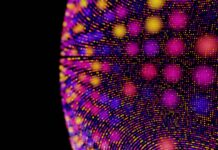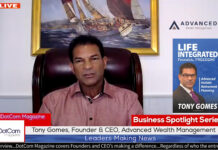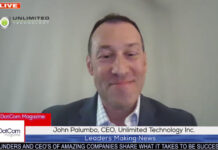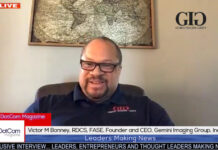Asexuality is a sexual orientation characterized by a lack of sexual attraction or interest in sexual activity. Individuals who identify as asexual may experience little to no desire for sexual relationships or may not experience sexual attraction towards others. Asexuality is often misunderstood or overlooked in discussions about sexual orientation, as it deviates from societal norms regarding sexual desire and behavior. Despite the lack of sexual attraction, asexual individuals may still experience romantic attraction and desire for emotional intimacy and companionship. Understanding the nuances of asexuality is crucial for promoting inclusivity and acceptance within diverse communities.
Asexuality, as a sexual orientation, is not a choice or a medical condition but rather a natural variation in human sexuality. Asexuality exists on a spectrum, with individuals identifying as fully asexual, demisexual (experiencing sexual attraction only after forming a strong emotional connection), or grey-asexual (experiencing sexual attraction infrequently or under specific circumstances). Some asexual individuals may engage in sexual activity for various reasons, such as curiosity, social pressure, or to please a romantic partner, but they do not experience intrinsic sexual attraction. The diversity within the asexual community highlights the complexity of human sexuality and the importance of recognizing and respecting individual differences.
Asexuality challenges societal norms and assumptions about sexuality, which often prioritize sexual attraction and activity as essential components of human relationships. In a culture that often equates sexual desire with personal fulfillment and validation, asexuality can be marginalized or stigmatized. Asexual individuals may face misconceptions, discrimination, or pressure to conform to traditional expectations regarding sexuality. Moreover, the lack of representation and visibility of asexuality in mainstream media and public discourse can contribute to feelings of alienation and invisibility among asexual individuals. Efforts to raise awareness and promote understanding of asexuality are essential for fostering inclusivity and creating supportive environments for diverse sexual orientations.
Asexuality challenges traditional notions of sexual orientation, which are often defined in relation to sexual attraction and behavior. While some individuals may experience sexual attraction towards people of the same gender (homosexuality), opposite gender (heterosexuality), or multiple genders (bisexuality), asexual individuals do not experience sexual attraction at all. This distinction is crucial for recognizing the diversity of human experiences and identities within the broader LGBTQ+ community. Asexuality is not a disorder or dysfunction but rather a valid and legitimate expression of human sexuality that deserves recognition, respect, and acceptance.
Asexuality intersects with other aspects of identity, including romantic orientation, gender identity, and cultural background. Asexual individuals may identify as aromantic (experiencing little to no romantic attraction) or may experience romantic attraction towards people of the same gender, opposite gender, or multiple genders. Furthermore, asexuality is not exclusive to any particular gender identity or cultural group. Asexual individuals can be cisgender, transgender, non-binary, or genderqueer, and they come from diverse cultural, ethnic, and religious backgrounds. Recognizing the intersectionality of asexuality can help address the unique challenges and experiences faced by asexual individuals within different social contexts.
Asexuality is a valid and legitimate sexual orientation that deserves recognition, respect, and support within society. Asexual individuals have the right to self-identify and define their experiences without judgment or pressure to conform to societal expectations regarding sexuality. Creating inclusive spaces and communities that embrace diverse sexual orientations, including asexuality, is essential for promoting acceptance and understanding. Educating oneself and others about asexuality, challenging stereotypes and misconceptions, and advocating for the rights and visibility of asexual individuals are crucial steps towards creating a more inclusive and affirming society for all.
Asexuality, as a sexual orientation, encompasses a broad spectrum of experiences and identities. Some asexual individuals may identify as aromantic, meaning they do not experience romantic attraction, while others may experience romantic attraction but not sexual attraction. The complexity of asexuality highlights the diversity of human sexuality and the importance of recognizing and respecting individual differences. Asexual individuals may form meaningful and fulfilling relationships based on emotional intimacy, companionship, and shared interests rather than sexual attraction. Understanding and validating the experiences of asexual individuals is crucial for creating inclusive and supportive communities that celebrate diversity and promote acceptance.
Asexuality challenges conventional narratives about sexuality and relationships, which often prioritize sexual attraction and activity as fundamental aspects of human connection. In a culture saturated with sexual imagery and messaging, asexuality can be misunderstood or dismissed as abnormal. Asexual individuals may feel pressure to conform to societal expectations regarding sexuality or may struggle to find acceptance within their communities. Moreover, the lack of representation and visibility of asexuality in media, education, and public discourse can contribute to feelings of isolation and marginalization. Creating spaces where asexual individuals can share their experiences, find validation, and connect with others who understand their identity is essential for fostering a sense of belonging and empowerment.
Asexuality is not a phase or a temporary condition but rather a fundamental aspect of an individual’s identity and orientation. While some asexual individuals may experience fluctuations in their level of sexual attraction or interest over time, their asexual orientation remains valid and deserving of recognition. Asexuality is not something that needs to be “fixed” or changed but rather accepted and respected as a natural variation in human sexuality. Providing resources, support, and affirming spaces for asexual individuals to explore and affirm their identity can help combat stigma and promote self-acceptance and empowerment.
Asexuality intersects with other dimensions of identity, including gender, race, disability, and cultural background. Asexual individuals may face unique challenges and experiences based on their intersectional identities, such as navigating cultural expectations around marriage and family, confronting ableism or racism within LGBTQ+ communities, or accessing inclusive healthcare and support services. Recognizing and addressing the intersectional dimensions of asexuality is crucial for promoting equity, diversity, and inclusion within broader social justice movements and institutions.
Asexuality is a valid and legitimate sexual orientation that deserves recognition, validation, and support within society. Allies and advocates play a vital role in amplifying the voices of asexual individuals, challenging stereotypes and misconceptions, and advocating for greater visibility and representation. By fostering empathy, understanding, and solidarity, we can create a world where all individuals, regardless of sexual orientation, feel affirmed, valued, and included.
In conclusion, asexuality is a valid and legitimate sexual orientation that encompasses a diverse range of experiences and identities. Asexual individuals may not experience sexual attraction or desire, but they still have the capacity for meaningful relationships, emotional connections, and personal fulfillment. Understanding and accepting asexuality is essential for promoting inclusivity, diversity, and respect within society. By challenging stereotypes, advocating for visibility and representation, and creating supportive communities and environments, we can create a more inclusive and affirming world where all individuals, regardless of sexual orientation, feel valued and respected for who they are. Embracing the diversity of human sexuality and affirming the identities of asexual individuals is a crucial step towards building a more equitable and compassionate society for everyone.
















